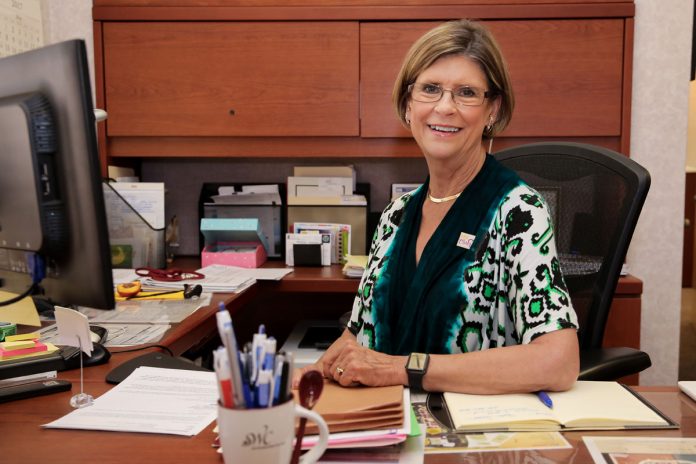Retirement is one of those milestones when one can reflect on a lifetime of work… the highs and lows… and hopefully the differences one has made in their community.
As this is my last column as the superintendent/president of Southwestern College, I am heartened by the many accomplishments that our amazing faculty, classified professionals, administrators, and executive leaders have achieved.
Working in community colleges has been my life’s purpose. Ever since I earned my associate’s degree from Barstow College while a single working mother, I understood the importance of community colleges in serving our most vulnerable students. Community colleges have been the gateway to higher education for so many students and families. At Southwestern College, we have graduated more than 500,000 students since we opened in 1961.
Community colleges are needed today more than ever. We will continue to be the economic drivers that get our unemployed neighbors back to work. Through short-term certificates, we can help retool and retrain workers affected by COVID’s impact.
Southwestern College, specifically, has been training our first responders in public safety, nursing, medical lab technology and dental hygiene–even during the shutdown. Through the efforts of dedicated faculty, classified professionals, and administrators at our campuses in Otay Mesa and National City, we were able to offer in-person instruction last spring so our students could complete their coursework. Those classes continue today–training our front-line workers.
Through the efforts of some very dedicated administrators, we began building safety nets for students facing food and economic insecurities. We opened the Jag Kitchen food pantry, and since COVID, have transitioned it to Jag Kitchen To Go to provide meal boxes for students to take home. We’ve institutionalized the SWC Cares emergency grant and have now hired a full-time basic needs coordinator who personally contacts every student who is requesting assistance to ensure we provide them every available support.
Bolstered by federal CARES funding–we coined the phrase first–we are able to offer laptops and wifi hotspots and direct grants to students to help them pay for classes, books and even rent. These financial lifelines have meant the difference between our students staying in school or dropping out. When they stay in school, we can provide them a host of mental and personal health resources. When they feel connected to one another, they are more likely to succeed. That is why we are proud of the work we have done around our learning communities, and the new ones permanently established over the last four years–the First Year Experience learning community and the CHEL learning community for our LGBTQIA+ students.
The more resources students receive, the more academically successful they will be. Over the last four years we have significantly increased the number of students who are completing transfer-level English and math in their first academic year, which increases their chance of achieving their goals.. The rewriting of curriculum, providing plenty of free tutoring and placing students directly into transfer-level English and math rather than remedial courses are changing the academic trajectories for so many more students.
Over the last four years we have also steadily increased the number of students awarded degrees and certificates. Much of those increases can be attributed to the focused work we are doing around Jaguar Pathways. Simple in its framework of onboarding and keeping students on their academic paths, the work of restructuring all our processes to help students graduate more quickly has been monumental.
Perhaps one of the most enduring legacies will be the intentional work we have done around building equity, diversity and inclusion on all our campuses. We have engaged in many painful conversations to confront the racial injustices some of our students and employees have experienced. We are working to dismantle the structural racism across higher education. We have established a common language–and actions–around equity and being student-centered. Part of that has been our work around diversifying college employee groups. We have moved our Executive Leadership Team to 75% diverse and our overall management team to 72.3%, an increase of 18.3% in four years.
It is this team under the new leadership of Dr. Mark Sanchez that will reaffirm our upcoming accreditation and manage a budget that offers even more transparency for our community.
I leave Southwestern College with a pride for what we have accomplished as a community, and I will continue to be one of this community’s greatest fans.















